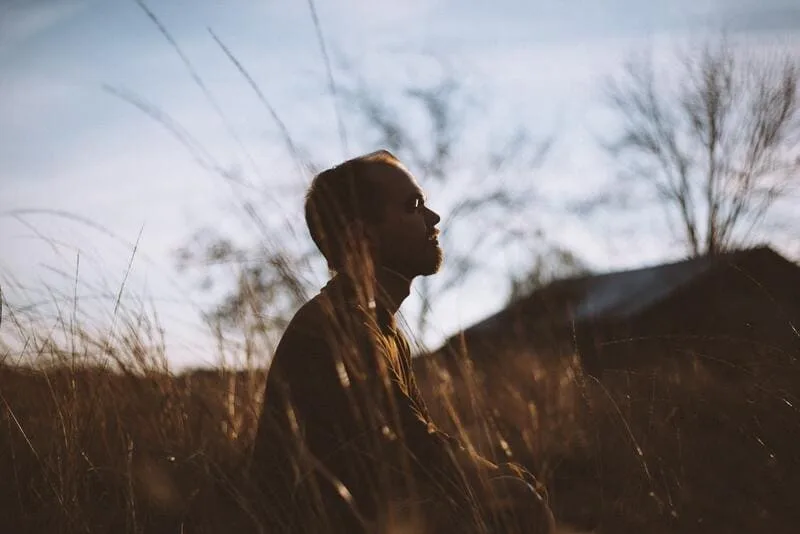Buddha was asked, “What have you gained from meditation?” He replied, “Nothing! However, let me tell you what I have lost: anger, anxiety, depression, insecurity, fear of old age and death.”
Can meditation cure anxiety? This might be a question you have asked yourself (or perhaps not yet!) at times when situations made you feel anxious – situations like going for an interview, giving that speech or maybe making friends at a new place.
In this article we will ask – and answer – these questions. Does meditation help with anxiety? How long does it take to cure anxiety? Is it even curable? So let’s explore the effectiveness and advantages of meditation when it comes to anxiety.
Unlocking Inner Peace: Discover The Profound Benefits Of Meditation!
Meditation offers a path to harness the mind’s focus and alleviate anxiety by cultivating heightened awareness and inner tranquility.
Scientific studies have demonstrated that consistent meditation practice can yield a wide array of favorable impacts on both mental, physical and emotional health. These impacts can be seen in stress and anxiety reduction, increased concentration and better sleep quality. Integrating meditation into your daily regimen can lead to a profound sense of tranquility and mental clarity that holds the potential to revolutionize your life.
Meditation: Your Key To Anxiety Relief

Research indicates the life-changing power of meditation, revealing its ability to overcome anxiety.
When anxiety strikes, our bodies instinctively engage in the “fight, flight or freeze” mode, releasing stress hormones that sharpen our senses and accelerate our heartbeats.
Additionally, meditation is like a skilled conductor of your brain’s emotions. When you make meditation a regular part of your day, you build a solid link to emotional strength. You gain control over the feelings of anxiety that used to dominate your mind.
Research And Studies On The Effectiveness Of Meditation For Anxiety
If someone walks up to you and asks, can meditation cure anxiety? You can point them to research. Over the years, numerous studies have been conducted to explore the effectiveness of meditation to help anxiety. These studies have consistently shown promising results, supporting the notion that meditation can be an effective tool for anxiety reduction.
One study published in the Journal of Clinical Psychology found that mindfulness-based meditation significantly reduced symptoms of anxiety in individuals with generalized anxiety disorder. Another study published in JAMA Internal Medicine showed that mindfulness meditation can be as effective as medication in reducing anxiety symptoms.
One landmark study conducted by the Department of Psychiatry at Johns Hopkins University revealed that mindfulness meditation programs could reduce symptoms of anxiety by a remarkable 38%. One of the most well-documented meditation programs is Mindfulness-Based Stress Reduction (MBSR), developed by Dr. Jon Kabat-Zinn. A meta-analysis of 39 studies found that MBSR significantly reduced anxiety symptoms, indicating a moderate to significant effect. Additionally, the benefits of meditation appear to be long-lasting.
These findings help answer our question: can meditation cure anxiety, and if so, then how? The findings highlight the potential of meditation as a complementary therapy for anxiety disorders. While it may not completely cure anxiety on its own, meditation can be a powerful tool in managing and alleviating symptoms, providing individuals with a sense of inner peace and resilience.
Transforming Despair Into Serenity: The Healing Power Of Meditation For Anxiety

So, can meditation cure anxiety? Here is the thing. Meditation offers a unique approach to managing anxiety by providing individuals with a set of tools and stress management techniques that can be practiced anytime, anywhere. By incorporating meditation into your routine, you can develop a sense of mindfulness and self-awareness that can help you navigate through anxious thoughts and emotions.
One of the key ways meditation helps anxiety symptoms is by promoting relaxation. Through deep breathing exercises and focused attention, meditation activates the body’s relaxation response, counteracting the physiological effects of anxiety. This can lead to a decrease in heart rate, blood pressure, and muscle tension, creating a sense of calm and tranquility.
Additionally, meditation cultivates mindfulness, which involves paying attention to the present moment without judgment. By practicing mindfulness meditation, individuals can develop a greater awareness of their thoughts and emotions, allowing them to observe their anxiety without becoming overwhelmed by it. This can help individuals gain a sense of control over their anxiety and reduce its impact on their daily lives.
Meditation offers a multitude of benefits, both for the mind and body. It is a powerful practice that can help alleviate stress and anxiety. While it may not necessarily “cure” anxiety, meditation can significantly reduce its impact on one’s life. Meditation helps anxiety by promoting relaxation, reducing stress, and fostering a sense of calm and emotional balance.
Through regular practice, individuals often find themselves better equipped to navigate the challenges of daily life with increased mental clarity and resilience.
So, in answer to the question, “Can meditation cure anxiety?” it might not be a cure-all, but it’s certainly a valuable tool that can greatly assist in managing and mitigating the challenges of anxiety.
Can Meditation Cure Anxiety? Find Calm With Meditation Techniques For Anxiety Relief

Meditation encompasses a wide range of techniques and practices, each offering its own unique benefits for anxiety relief. Here are some of the most popular types of meditation techniques that can help alleviate anxiety:
- Mindfulness Meditation:
- What it is: Focus on the present moment without judgment.
- How it helps: Reduces anxiety by grounding you in the here and now.
- Deep Breathing:
- What it is: Slow, deliberate breaths to calm the nervous system.
- How it helps: Relieves stress and reduces the “fight or flight” response.
- Body Scan:
- What it is: Mentally scan your body for tension and release it.
- How it helps: Promotes relaxation and awareness of bodily sensations.
- Guided Imagery:
- What it is: Imagine peaceful scenes to transport your mind.
- How it helps: Shifts focus away from anxiety-inducing thoughts.
- Loving-Kindness (Metta) Meditation:
- What it is: Cultivate feelings of love and compassion for yourself and others.
- How it helps: Fosters positive emotions and reduces self-criticism.
Remember that consistent practice is key to experiencing the benefits of meditation for anxiety relief. It’s also perfectly fine to experiment with different techniques until you find the one that resonates most with you and provides the relief you seek.
Elevate Your Life: Embrace Daily Meditation For Boundless Success!
To reap the benefits of meditation, it’s important to make it a consistent part of your morning routine. Here are some tips to help you incorporate meditation into your daily life, starting with crafting a morning meditation routine.
- Start small: Begin with just a few minutes of meditation each day and gradually increase the duration as you become more comfortable. Consistency is key, so aim to meditate at the same time each day to establish a habit.
- Create a dedicated space: Find a quiet and comfortable space where you can practice meditation without distractions. Create a calming atmosphere by adding elements such as candles, cushions, or soft music.
- Use guided meditation: If you’re new to meditation, using guided meditation apps or recordings can be helpful. These provide instructions and guidance, making it easier to focus your attention and stay present.
- Make it a part of your routine: Incorporate meditation into your daily routine by setting aside a specific time for practice. Whether it’s in the morning, during a lunch break, or before bed, find a time that works best for you and stick to it.
The above steps are good to get started with your daily routine. But to take things to the next level, here is a helpful resource on how to meditate.
Transform Your Anxious Mind
We started by asking, can meditation cure anxiety? The truth is, you can engage in meditation to help anxiety management.
Meditation can be your secret weapon against anxiety. We’ve shared how this practice can be a game-changer, offering you a pathway to relax, become more mindful, and truly understand yourself.
We do encourage you as well to consider seeking guidance from a meditation teacher or therapist if you’re new to meditation or experiencing severe anxiety.
And remember, there’s no rush to perfection here. Your meditation journey is unique, and it’s okay to take your time figuring out what works best for you.
So, let’s take a moment together. Find a cozy spot, and start your meditation adventure today. It’s a journey towards inner peace and resilience, and we are excited for you to discover the incredible benefits meditation has to offer. Embrace it, make it your daily companion, and watch how it transforms your life.
If you are ready to bring in more calmness, sign up today to join our free live guided meditation sessions!







